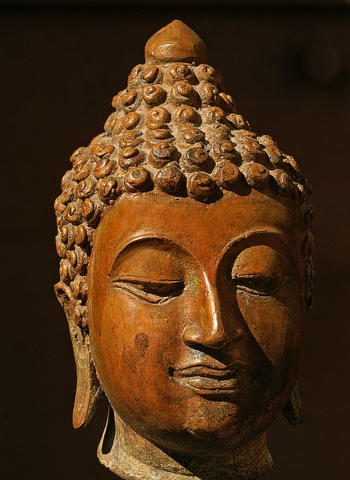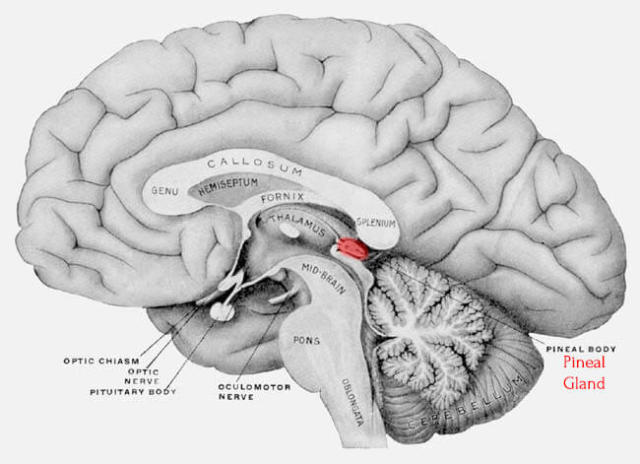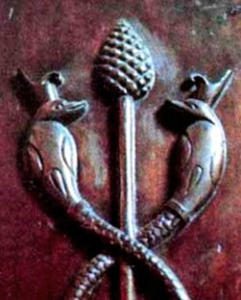Within the center of everyone’s brain is a small pine cone-shaped endocrine gland, known as the pineal gland. The pineal gland is located very close to the pituitary gland. This tiny, yet very important gland is responsible for many important functions in our bodies.
Tasks of the Pineal Gland
The pineal gland produces various hormones and chemicals that keep us healthy and functioning well. One such hormone that the pineal gland produces is called melatonin, which controls our body’s sleep and wake patterns. Without the proper amounts of melatonin in our system, we experience sleep disruption, and possibly an accelerated aging process. Other hormones and chemicals created through the pineal gland, when it is functioning properly, cause states of happiness, euphoria, peacefulness, healthy mental function, balanced emotions, moods, and nervous system. Yet that is not all this little pine cone-resembling part of our human anatomy does.

This tiny, yet very important gland is often referred to as our “Third Eye.” It has also been called the “God Organ” and “Seat of the Soul.” This little pine cone gland is the home to our “brow chakra”, or in Sanskrit it is called the “ajna”, and is associated with visionary, psychic, and spiritual phenomena and experiences.
DMT (Dimethyltryptamine), aka the “Spirit Molecule” – a naturally occurring tryptamine that produces psychoactive and spiritual visionary experiences, is produced in the pineal gland. Many people have never known that they were capable of such experiences. Perhaps they thought that only a rare few people were “psychic”, received visions, or had profound spiritual experiences. The truth is, we are all able to live life in a more awakened and spiritually-connected way. We were all designed to be having these experiences.
The cultural Meaning of the Pineal Gland

Ancient cultures throughout the world seemed to have an understanding of the extreme value and importance of the pineal gland. Pine cone carvings, art, and emblems have been found in cultures throughout the world. We see this on the staffs of both the Egyptian god, Osiris, and the Greek god, Dionysus. It appears in the hairstyles that are shaped like pine cones in many depictions of Shiva, the Hindu god, as well as of Buddha. The staff of the Roman Catholic pope has a pine cone carved towards its top point. There are biblical references to pine cones and the pineal gland, and the pine cone is often seen in Christian churches on the candle holders. All of this shows us that throughout history, spiritually based cultures and many religions had an awareness and deep respect for this little gland, and all that it is responsible for and associated with.

One of the factors that have prevented so many people from living in such an awakened state and having proper brain function, is the calcification of the pineal gland. When this occurs, the pineal gland accumulates calcium crystals, hardens, and loses much of its ability to function properly. It is as if the third eye has been sealed shut and can no longer “see”. Due to chemical exposure, intake of fluoride, radiation, pesticides, artificial sweeteners, lack of good nutrition, excess acidity in the body, and other unhealthy factors, the majority of humanity has been suffering from pineal gland calcification.
It can start young, and if not acknowledged and addressed, it will continue to calcify and the proper function of the pineal gland will become inhibited. Some experts believe that the calcification of the pineal gland is one of the main factors causing Alzheimer’s, Parkinson’s, schizophrenia, tremors, anxiety, depression, eating disorders, and other mental and nervous disorders.
The good news is there are ways to decalcify and activate your pineal gland.

First we must start with focusing on what we put in our bodies – what we eat and what we drink. One of the biggest culprits in the calcification of our pineal glands is fluoride. Fluoride is a neuro-toxin, and diminishes healthy brain function. There is a Harvard study that shows fluoride linked to lowering IQ, and reducing the neurological function of children. This study was published online in Environmental Health Perspectives on July 20, 2012.

Fluoride is added in much of the drinking water of the United States, as well as many commercial types of toothpaste. In other countries, it is often added to the salt. If possible, choose pure spring water, reverse osmosis, or alkaline water for your drinking.There are many non-fluoridated toothpaste options at stores that sell all natural and organic products. The best salt to use is Himalayan rock salt, or pure, unrefined (non-fluoridated sea salt.) In addition to avoiding fluoride, it is important to avoid genetically modified foods, foods grown with pesticides, foods that contain MSG, artificial ingredients, and chemical preservatives. The healthy alternative is to eat a diet of organic, fresh, whole foods. Lowering meat consumption, and other acidifying foods is also important. Some of the most acidifying foods are meat, alcohol, refined flours, refined sugar, refined oils, and all processed or chemical-laden foods.
Due to the wondrous provision of nature, there are several herbs and supplements that can also assist in decalcifying the pineal gland. Some of the top ones are rapé – a sacred “snuff” from South America, ayahuasca, oregano oil, neem leaf, tulsi (holy basil), reishi mushroom, chaga mushroom, apple cider vinegar, food-grade iodine, MSM, boron, zeolite, melatonin, and whole cacao beans.
There are some essential oils that are also believed to assist in activating and even helping decalcify the pineal gland. These include essential oils of pine, sandalwood, lavender, and frankincense. You can use these oils in a diffuser, a bath, or added to a carrier oil and applied to the body.

Regular meditation is also said to be helpful in the activation of our pineal gland. Sleeping in darkness- with no lights entering the room is important for proper pineal gland function, and for the production of melatonin. If your melatonin production has been low, and you have experienced disrupted or erratic sleep patterns, you can use melatonin supplements to assist in replenishing this valuable hormone, and also in balancing your sleep cycles.
As we heal our bodies and make healthy choices that support activating and decalcifying our pineal glands, we allow ourselves the opportunity of living much more rich and vibrant lives, and moving closer towards our full potential. Beyond just health of the body and mind, an activated pineal gland can also assist us in our spiritual pursuits and practices. With an expanded and renewed vision, we can rise to be like the saying goes – human beings having a spiritual experience.
About the Author
Zahrah Sita is a professional practitioner of Traditional Chinese Medicine and acupuncture, an herbalist, a health and wellness guide, a student and an enthusiast of plant medicines and ancient indigenous wisdom and traditions. She helps lead sacred cacao ceremonies with the Mystic Heart Sacred Cacao Tribe and also helps organize sacred medicine ceremonies. Zahrah is also the co-founder and co-director at Abundant Global Solutions, is a writer, a dancer, and a lover of all of the arts, nature, spirituality, and natural healing. Zahrah resides in Costa Rica year round.
For more information visit also:
- www.facebook.com/MysticHeartSacredCacaoTribe
- www.facebook.com/AbundantGlobalSolutions
- www.AbundantGlobalSolutions.org
